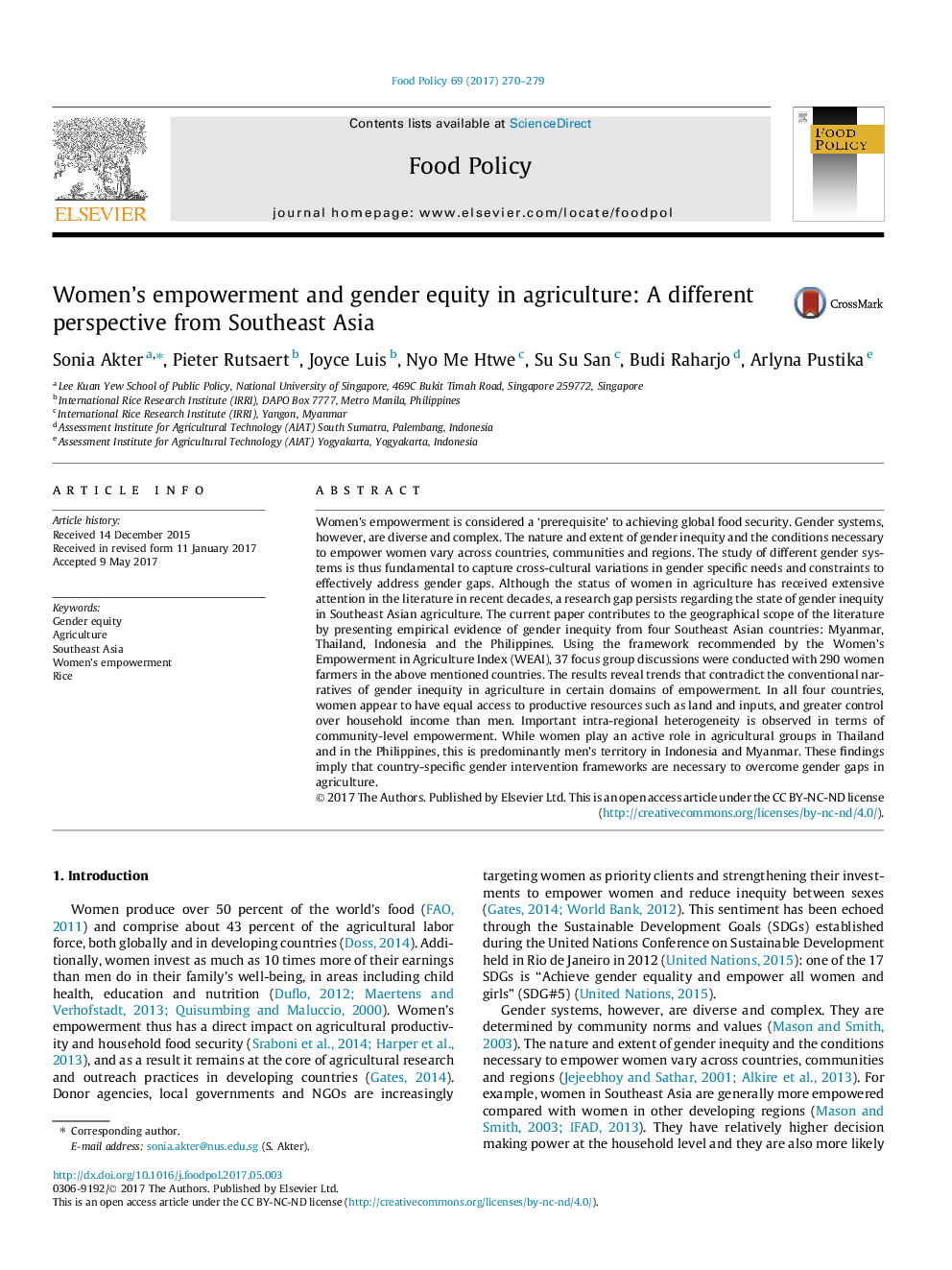ترجمه فارسی عنوان مقاله
توانمندی زنان و حقوق زنان در کشاورزی: چشم انداز متفاوت از آسیای جنوب شرقی
عنوان انگلیسی
Womenâs empowerment and gender equity in agriculture: A different perspective from Southeast Asia
| کد مقاله | سال انتشار | تعداد صفحات مقاله انگلیسی |
|---|---|---|
| 88039 | 2017 | 10 صفحه PDF |
منبع

Publisher : Elsevier - Science Direct (الزویر - ساینس دایرکت)
Journal : Food Policy, Volume 69, May 2017, Pages 270-279
ترجمه کلمات کلیدی
عدالت جنسیتی، کشاورزی، جنوب شرقی آسیا، توانمندسازی زنان، برنج،
کلمات کلیدی انگلیسی
Gender equity; Agriculture; Southeast Asia; Women's empowerment; Rice;

